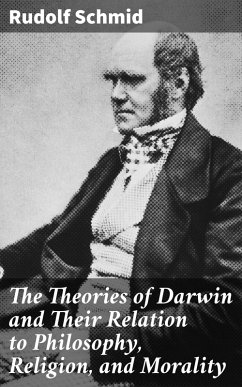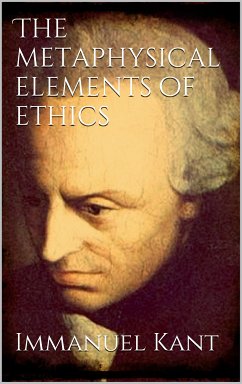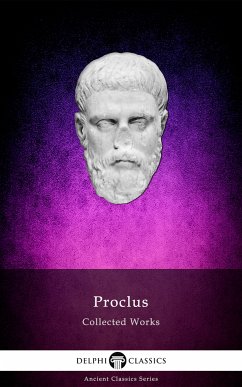
Elements of Physiophilosophy (eBook, ePUB)
Enriched edition. Exploring the Natural World: Uniting Physiology and Philosophy
Kommentar: Pearce, Lauren / Redaktion: Good Press / Übersetzer: Tulk, Alfred
Versandkostenfrei!
Sofort per Download lieferbar
0,49 €
inkl. MwSt.
Weitere Ausgaben:

PAYBACK Punkte
0 °P sammeln!
In "Elements of Physiophilosophy," Lorenz Oken presents a pioneering exploration of the interconnectedness of life and nature, synthesizing insights from biology, metaphysics, and philosophy. Written in the early 19th century, Oken's work reflects the burgeoning Romantic and Idealist movements, which sought to unify disparate domains of knowledge through a holistic lens. His eloquent prose combines rigorous scientific observation with philosophical introspection, encouraging readers to consider the fundamental principles underlying the natural world and humanity's place within it. Lorenz Oken,...
In "Elements of Physiophilosophy," Lorenz Oken presents a pioneering exploration of the interconnectedness of life and nature, synthesizing insights from biology, metaphysics, and philosophy. Written in the early 19th century, Oken's work reflects the burgeoning Romantic and Idealist movements, which sought to unify disparate domains of knowledge through a holistic lens. His eloquent prose combines rigorous scientific observation with philosophical introspection, encouraging readers to consider the fundamental principles underlying the natural world and humanity's place within it. Lorenz Oken, a prominent figure in the fields of natural philosophy and early biology, was deeply influenced by the scientific advancements of his time as well as the metaphysical inquiries of Kant and Schelling. Oken's background in medicine and his interest in the dynamic interplay of organisms fueled his vision, as he sought to articulate a comprehensive framework that elucidates the laws governing life. This work not only marks a significant milestone in the evolution of biological thought but also demonstrates Oken's ambition to bridge the gap between science and philosophy. This book is a must-read for scholars and those intrigued by the origins of modern biology and philosophy. Oken's profound insights stimulate critical thinking about the nature of life and existence, making it a timeless reference for anyone wishing to delve into the intricacies of the natural world. Whether you are a student, a researcher, or simply a curious reader, "Elements of Physiophilosophy" offers a rich intellectual experience that continues to resonate today. In this enriched edition, we have carefully created added value for your reading experience: - A succinct Introduction situates the work's timeless appeal and themes. - The Synopsis outlines the central plot, highlighting key developments without spoiling critical twists. - A detailed Historical Context immerses you in the era's events and influences that shaped the writing. - A thorough Analysis dissects symbols, motifs, and character arcs to unearth underlying meanings. - Reflection questions prompt you to engage personally with the work's messages, connecting them to modern life. - Hand-picked Memorable Quotes shine a spotlight on moments of literary brilliance. - Interactive footnotes clarify unusual references, historical allusions, and archaic phrases for an effortless, more informed read.
Dieser Download kann aus rechtlichen Gründen nur mit Rechnungsadresse in A, B, BG, CY, CZ, D, DK, EW, E, FIN, F, GR, H, IRL, I, LT, L, LR, M, NL, PL, P, R, S, SLO, SK ausgeliefert werden.













